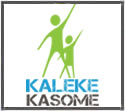News List
-
Dec 8, 2025, 1:47 pm
Celebrating Women’s Day: Honoring Women
International Women’s Day, observed globally on the 8th of March, is more than just a celebration—it’s a call to action for gender equality and the empowerment of women. This day serves as a powerful reminder of the progress made toward achieving equality, while also highlighting the work that remains to create ...
-
Dec 8, 2025, 1:45 pm
Building better and sustainable futures
This ongoing initiative at KaKaF is a beacon of hope for teenage mothers, empowering them to rise above their circumstances and build sustainable, fulfilling lives. The program is designed to address the unique challenges they face, offering holistic support that nurtures both personal and professional growth. Thro...
-
Dec 8, 2025, 1:43 pm
Fostering a Love for Reading at the KaKaF Library
At the Kaleke Kasome Foundation (KaKaF), the library is more than just shelves of books—it is a sanctuary of imagination, learning, and opportunity. Every day, children from nearby communities gather in this vibrant space to explore the magic of reading. The library, designed to inspire young minds, is filled wit...
-
Dec 8, 2025, 1:41 pm
Strengthening Referral Pathways
Strengthening Referral Pathways To Track Sexual Abuse Cases In Mpigi District. A large portion of children in Mpigi district that are sexually abused and therefore experience sexual violence do not seek help or get to report cases of such abuse to the local authorities. Sexual abuse against children consists of bot...
-
Dec 8, 2025, 1:39 pm
International Day of the Girl Child
This initiative is dedicated to identifying and assessing vulnerable children, particularly those suspected of living in abusive environments but unable to speak out due to fear of retaliation or further harm from their abusers. It serves as a crucial step in safeguarding children’s rights and ensuring their well-be...
-
Dec 8, 2025, 1:29 pm
The Girls’ Holiday Camp in Partnership with HEDCO
The Girls’ Holiday Camp, hosted in collaboration with HEDCO, is a transformative initiative designed to empower young people with essential knowledge and skills. The program focuses on three key areas: sexual and reproductive health, economic empowerment, and career guidance. Through hands-on experiential learning,...
-
Dec 8, 2025, 1:26 pm
The Girl Champion Awards celebrate remarkable girls
The Girl Champion Awards celebrate remarkable girls and young women who use the resources and opportunities available to them to elevate their lives and make a meaningful impact in their communities. These awards recognize individuals who have shown exceptional dedication to driving sustainable change in social and...
-
Dec 8, 2025, 1:23 pm
World Day for Prevention, Healing & Justice
Every year, the world comes together on World Day for Prevention, Healing & Justice to raise awareness and take action against childhood sexual violence. This day is a call to end the horrors that many children face in silence, empowering individuals, communities, and governments to come together to protect, heal,...

Kaleke Kasome Foundation
The Kaleke Kasome Foundation (KAKAF) is a not-for-profit organisation that strives to empower communities through strengthening mechanisms of ending sexual and gender-based violence against children and promoting their rights.
This rampant vice has been responsible for teenage pregnancy, early marriage, and school dropouts, as well as related physical, social and psychological effects on the victims of SGBV among girls and young women.
“Kaleke Kasome” is a Luganda expression that can be directly translated as “Let the girl child stay in school”. In 2005, an incisive song composed and sung by our very own founder and director, Mr Mahasa Maurice (aka Hasa), popularised the idea of allowing girls to stay in school, instead of condemning them to the implications of underage sex, early marriages, and teen pregnancies.
Learn MoreOur Work & Latest Programs

Give For Good
Our organization encourages the participation of volunteers who support our mission.If you agree with our mission and are willing to be ...









